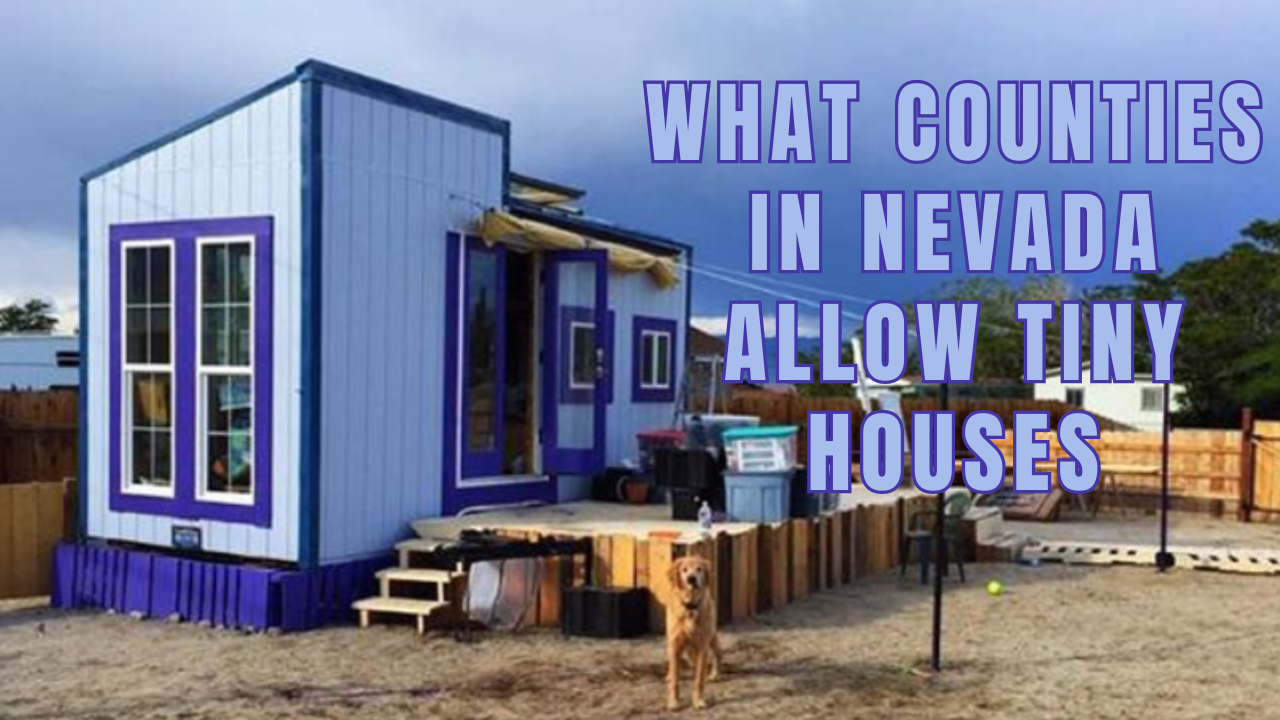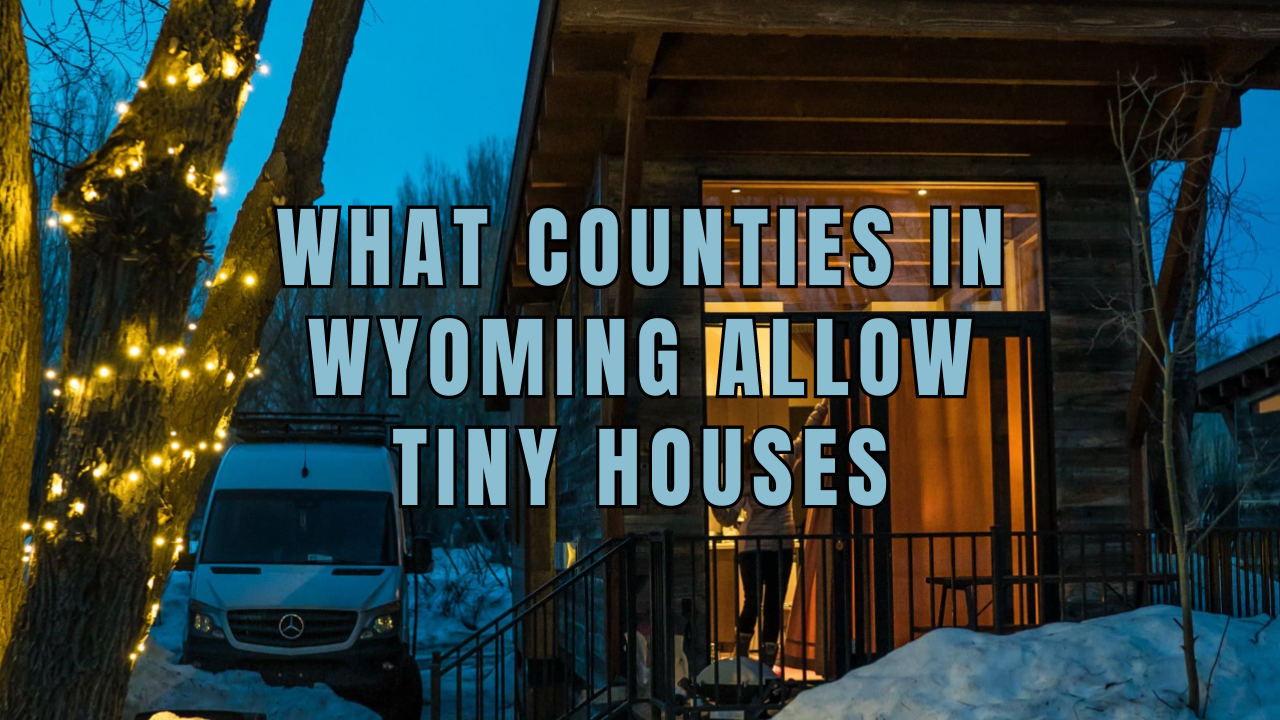Have you been dreaming of living in a tiny house in the scenic rural areas of Nevada? Before you leap, understand the rules and regulations governing tiny houses in the state.
While tiny houses are legal in Nevada, each county has ordinances regarding construction and placement. Consider the regulation set by the governing body of the specific county in which you are interested in buying a tiny home.
In this article, we’ll explore which counties in Nevada allow tiny houses and the rules and regulations to consider before moving.
Tiny House Prices in Nevada
After embarking on your tiny house project, you are curious about affordable solutions that match your aspirations for a tiny home.
Fantastic news! We provide options to suit every living style and price range to assist you in taking the next step toward your living project. View Nevada’s tiny home listings for sale.
What Counties in Nevada Allow Tiny Houses?
Nevada includes small dwellings in its inventory of housing options. SB150, enacted by the Nevada State Legislature, requires towns with populations above a specific level to modify their zoning rules to include small dwellings by January 1, 2024.
The zoning districts in which tiny homes are placed as accessory dwelling units, single-family residential units, or within tiny house parks must be specified under these rules. The International Code Council or its successor organization’s definition of a tiny house must be consistent with the International Residential Code.
Clark County
Nevada’s Clark County has its construction codes. If a unit in Clark County contains a kitchen or any other cooking facility, it cannot be considered an accessory housing unit. A construction permit is necessary if the structure is more than 200 square feet and designated as a shed. In Clark County, structures over 200 square feet are classified as sheds and require a building permit.
Nevada County
Nevada County permits tiny dwellings. However, residents of small homes can not create a residence anywhere due to zoning restrictions and regulations.
Nevertheless, despite these regulations, there are a lot of little residences in places like Henderson and Las Vegas.
Tiny House Regulations And Rules In Nevada
Nevada’s regulations support the use of prefabricated homes, including small houses. All over the state, even in rural regions, local zoning laws are in effect, and there are particular rules regarding the number of mobile vehicles, the installation of new homes, and the building of greenhouses.
In the United States, a building must be under 600 square feet to qualify as a small home and obtain a permit for a minimum of 200 square feet.
Permanent Structure Rules
There are zoning rules in Nevada that regulate small dwellings as permanent constructions. Counties with 100,000 or more residents and cities with 150,000 or more residents adopt zoning regulations for small dwellings.
The zoning districts in which tiny homes are accessory dwellings, single-family residential units, or situated in small house parks must be specified by these rules, following the International Residential Code to define a tiny house.
Temporary Structure Rules
In Nevada, particularly in Las Vegas, where neighborhoods like Airstream Park provide transient housing, tiny houses also function as temporary construction. These communities offer a quick and inexpensive home alternative; the average rental price is less than $1000.
Transitional Structure Rules
Transitional structures can serve as temporary rehabilitation houses and health centers for vulnerable populations. A great example is the structures the Hope Springs Project (in Reno) offers. These communities are part of a joint effort to address house affordability and provide alternative housing solutions.
In Nevada, Where Can I Build A Tiny House?
The tiny house’s location is elemental. Choose a licensed small house builder to help you with the procedure, handle every paperwork, and guarantee that your home satisfies all construction regulations.
Building a tiny house needs planning, but it doesn’t have to be unpleasant. The following are common locations for tiny houses.
- RV parks
- National Parks and campgrounds
- Tiny house communities
- Private properties
Tiny House Communities in Nevada
Nevada is friendly to tiny home communities and support groups. Some examples include Llamalopolis Village, Dancing River Community, and the multiple online forums for tiny house and homesteading lovers.
These communities encourage social interaction among like-minded people in addition to offering housing.
Llamalopolis Village
Llamalopolis Village is an Airstream village and tiny house on wheels in the Fremont East District in downtown Las Vegas.
The village is full of charming eccentricities, such as an alpaca pin, a stage for group performances and talent shows, and a tunnel of glittering lights that leads into a common living area.
Five-foot-high walls surround this village for privacy. In addition, the residents share common areas like a laundry room, kitchen, and indoor office/lounge.
Dancing River Community
Now, 11 people and 2 kids live in the Dancing River Community intentional living community. Every house has a metal roof, a broad loft space supported by tree trunks, solar-aided radiant heat, excellent insulation, passive solar architecture, and movable skylights for passive cooling.
There is also a four-room house in this intentional living community. The biggest is a multifunctional space for indoor events, yoga, dancing classes, and community gatherings. The lounge also has a postal center, an entertainment room, and a library. The wheelchair-accessible bathroom with a shower and the guest room are in the southwest corner.
Tiny House Builders Near Me
You no longer have to look for local builders to discover your ideal home since Great Lakes Tiny Homes provides a variety of tiny house designs with national shipping.
Also, RV Industry Association (RVIA) builders include Great Lakes Tiny Homes, driven by a strong desire to produce tiny homes that strictly adhere to construction, safety, and regulatory requirements and the best production standards.
Do I Need a Certified Builder?
You do, indeed. You could think about doing it yourself, but the risks can be costly and disappointing.
Dealing with a builder who has earned RVIA certification, such as Great Lakes Tiny Homes, guarantees your tiny house complies with laws and regulations.
It guarantees that the materials used in your house are high-quality, long-lasting, and safe.
Working with a registered builder also offers access to insurance coverage and financing choices. Your tiny house is guaranteed to be a safe and livable space, provided it complies with RVIA requirements.
FAQs
Can You Make a Tiny House in Nevada Your Main Residence?
In Nevada, it is permissible to live in a tiny house permanently.
On the other hand, pay attention to local laws and guidelines. A good way to ensure your small house complies with all the rules and regulations, including inspection requirements, is to contact the zoning and local authorities.
Nevadans can enjoy a less complex, more sustainable lifestyle by doing their study and working with qualified builders.
Does Nevada Allow Tiny Homes on Foundations?
Nevada has not yet passed Appendix Q for tiny houses, and there is no state legislation governing tiny dwellings on foundations.
Still, if you want to construct a tiny house in Nevada, you must follow the state’s conventional housing regulations.
Getting in touch with your local authorities is the best way to find out what is permitted while building a tiny house.
What Is the Recommended Size In Nevada?
In Nevada, a residential property under 600 square feet is referred to as a tiny home. But according to Boulder City, a tiny house is 400 square feet or less—not including lofts. This definition is essential for builders and property owners to guarantee compliance with local codes.
Conclusion
Nevada is gradually adopting the tiny home movement, enacting legislation, and creating neighborhood projects to encourage this way of living. More counties will probably create precise regulations for small houses as the state approaches the January 1, 2024, deadline for zoning ordinance compliance, which will support a varied and sustainable housing market.





